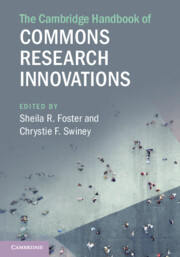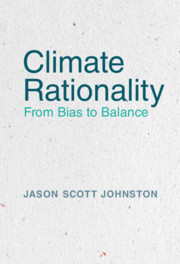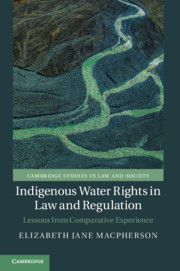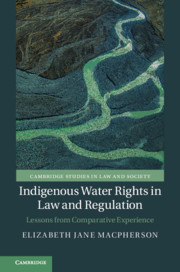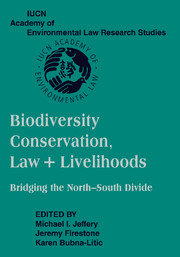The Cambridge Handbook of Commons Research Innovations
The commons theory, first articulated by Elinor Ostrom, is increasingly used as a framework to understand and rethink the management and governance of many kinds of shared resources. These resources can include natural and digital properties, cultural goods, knowledge and intellectual property, and housing and urban infrastructure, among many others. In a world of increasing scarcity and demand - from individuals, states, and markets - it is imperative to understand how best to induce cooperation among users of these resources in ways that advance sustainability, affordability, equity, and justice. This volume reflects this multifaceted and multidisciplinary field from a variety of perspectives, offering new applications and extensions of the commons theory, which is as diverse as the scholars who study it and is still developing in exciting ways.
- Offers new understandings of the commons theory in the context of contemporary political and social challenges
- Spans multiple themes and disciplines, including international affairs, political science, legal theory, and environmental studies
- Brings together expert scholars and experienced practitioners in the field of commons
Reviews & endorsements
‘This Handbook is the most complete and inspiring guide to the origins of and innovations in commons research, addressing the complexity and range of the commons today – beyond physical resources, to include public space, technology, the role of the commons in the economy, and the implications for public policy.’ Marguerite Mendell, Director, Karl Polanyi Institute of Political Economy, Concordia University
‘The Cambridge Handbook of Commons Research Innovation comes at a most opportune moment, bringing together some of the most prominent contemporary thinkers and scholars on the commons. The Handbook synthesizes innovative research on the commons and collective action needed to address 21st-century crises of sustainability.’ Harini Nagendra, Professor of Sustainability, Azim Premji University
‘The Cambridge Handbook of Commons Research Innovation, edited by Sheila R. Foster and Chrystie F. Swiney, is an incredibly well-put-together and thought-out collection of essays on commons research that stands out because it takes a forward-thinking approach from the very beginning. As we move forward with our understanding of commons research, the Handbook offers a broad-ranging, wide-scope volume with multiple theoretical innovations and interesting empirical case studies on various ways in which commons research is used, applied, extended, and improved upon. A must-read volume.’ Raul Pacheco-Vega, Associate Professor, FLACSO Mexico
‘Strangely enough, legal scholars have long been absent in the domain of commons studies, although property and rights are all over the place when we’re talking about the use of collective resources. This Handbook introduces various new applications of the concept of commons – amongst others, from the legal perspective – and connects it in particular to discussions about the public domain. It offers the material for a most welcome reflection on the limits, but also possibilities, of collective resource governance and use.’ Tine De Moor, Professor of Social Enterprise and Institutions for Collective Action, Erasmus University
'A largely overdue primer on a fast-developing field. This is an impressive collection of recent thought and practices on managing different kinds of shared resources.' Ugo Mattei, The Alfred and Hanna Fromm Distinguished Professor of International and Comparative Law, UC Hastings and Professor of Civil Law, University of Turin
Product details
June 2023Paperback
9781009295710
353 pages
230 × 150 × 20 mm
0.67kg
Available
Table of Contents
- Introduction: Commons research in the 21st century and beyond Sheila Foster and Chrystie Swiney
- Part I. Revisiting the Origins and Evolution of Commons Thought:
- 1. Linking the origins and extensions of commons theory William Blomquist
- 2. The tragedy of Garrett Hardin's commons Andrew P. Follet, Brigham Daniels, Taylor Petersen
- 3. Kinship and commons: the Bedouin experience Haim Sandberg
- Part II. Averting New Tragedies:
- 4, Averting tragedy of the resource directory anti-commons Greg Bloom
- 5. Time and tragedy: the problem with temporal commons Blake Hudson
- 6. Transforming climate dilemmas from tragedy to cooperation Bryan Bruns
- Part III. New Forms of Contested Commons:
- 7. Urban public housing as a commons Andrea Mcardle
- 8. Humanitarian aid as a shared and contested common resource Michelle Reddy
- 9. The economic system as a commons: an exploration of shared institutions John Powell
- Part IV. Urban Landscape and Infrastructure as a Commons:
- 10. Seeing New York City's urban canopy as a commons: a view from the street Rebecca Bratspies
- 11. City as commons: the case study of Bologna Elena De Nictollis and Christian Iaione
- 12. Urban commons architecture: collaboration spaces innovating learning within cities Sofia Croso Mazzuco
- Part V. Reassessing Old and New Institutions for Collective Action:
- 13. Business improvement districts and the urban commons Alexandra Flynn
- 14. To have and to hold? Community land trust as commons Barbara Bezdek
- 15. Ostromian logic applied to civil society organizations and the rules that shape them Anthony Demattee and Chrystie Swiney
- 16. A conceptual model of polycentric resource governance in the 2030 district energy program Erik Nordman
- Part VI. Managing and Restoring the Commons:
- 17. Management of facilitated common pool resources in India Pradeep Kumar Mishra
- 18. Social environmental dilemmas and governing the commons: the Itanhém river basin in Southern Bahia, Brazil Herbert Martins and Fernando Rios De Souza
- 19. Social trust, informal institutions and community-based wildlife management in Namibia and Tanzania Daniel Ogbaharya
- 20. Restoring the commons Itzchak Kornfeld
- Part VII. Law, Legal Theory and the Commons:
- 21. Prior appropriations as a response to the tragedy of the commons Robert Abrams
- 22. Using the public trust doctrine to manage property on the moon Hope Babcock
- 23. A biotechnology regulatory commons problem David Forman
- 24. Can affirmative action offer a lesson in fighting enclosure? Sheldon Bernard Lyke
- Part VIII. Technology, the Internet and the Future of Commons Governance:
- 25. Can technological change weaken the robustness of common-property regimes Maija Halonen-Akatwijuka and Evagelos Pafilis
- 26. Internet governance in the digital cold war Scott Shackelford and Angie Raymond.

